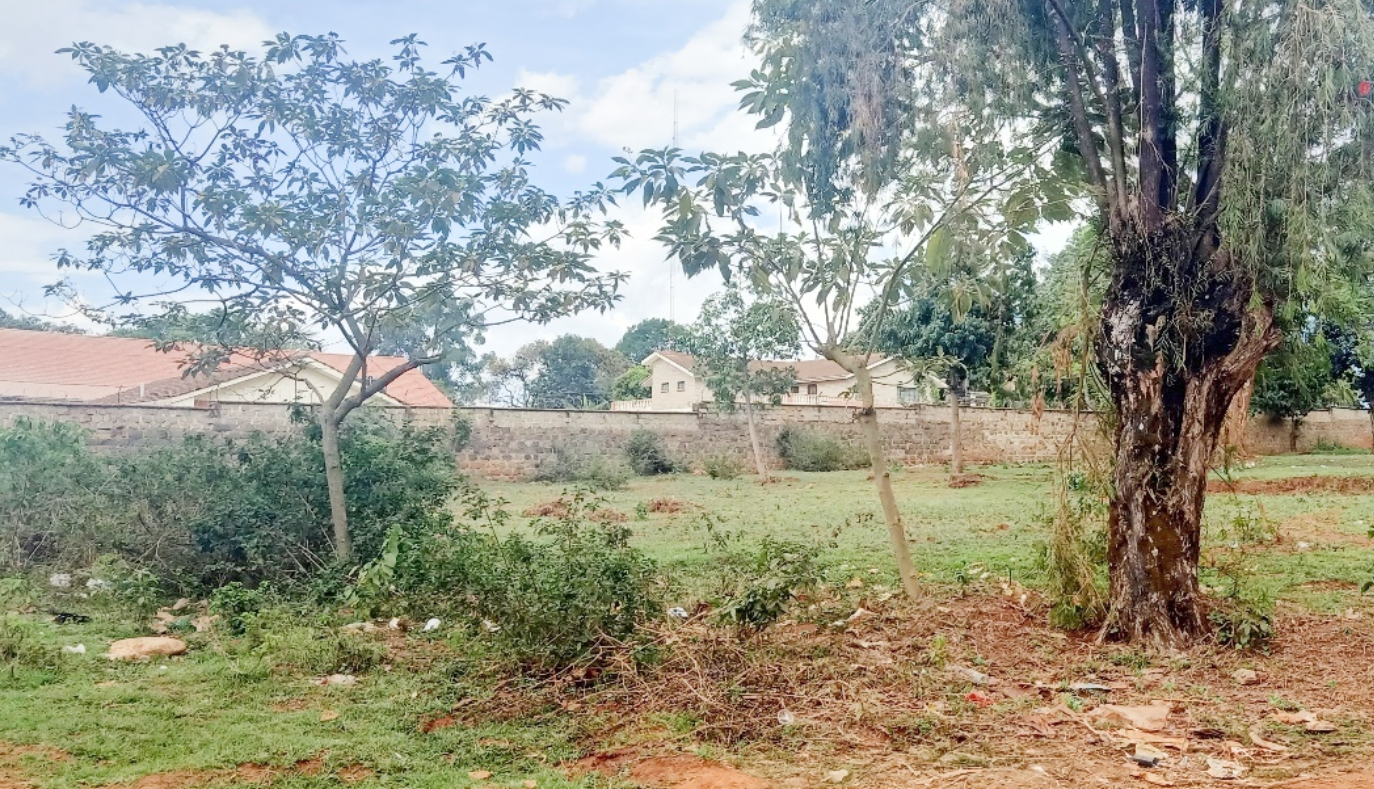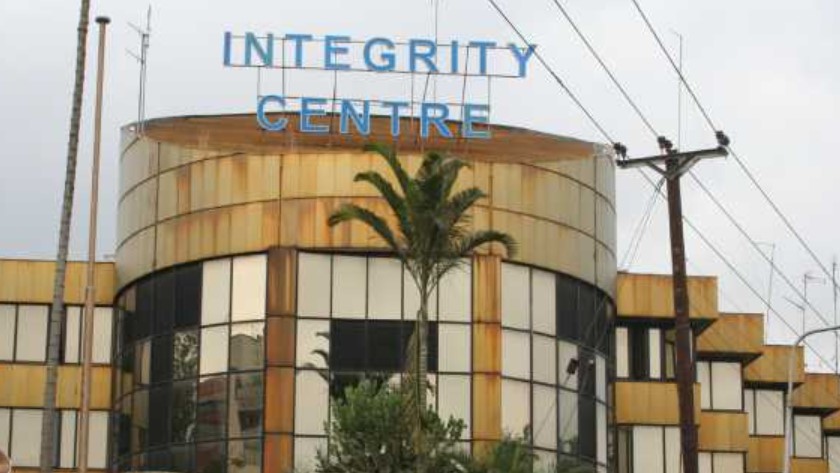News
EACC Strikes Back Recovers Ksh50 Million Kitale School Land from PTA Chair and Corrupt Govt Official

In a major win against land grabbing and corruption, the Ethics and Anti-Corruption Commission (EACC) has successfully recovered a prime parcel of public land worth Ksh50 million in Kitale that had been illegally seized by a former Parents Teachers Association (PTA) chairperson.
The land, originally intended for educational purposes, had been fraudulently allocated in 1994 through collusion with a senior government official.
It was later converted into a commercial hub, with private developments such as a petrol station, apartments, and a supermarket. A court has now ordered its return to the rightful owners—the school and the community.

EACC said more cases of land grabbing are under investigation and warned public officials and their accomplices that no corrupt dealings will be allowed to stand—even decades later. [Photo: Courtesy]
Kitale School Land Reclaimed in Landmark Anti-Corruption Victory
The Kitale Environment and Lands Court issued strong preservation orders on July 9 to block any further dealings with the four-hectare (9.8-acre) parcel of land that rightfully belongs to a public school in Kitale.
This decision followed a 2023 investigation by EACC that exposed the illegal acquisition of the land by a former PTA chair, who acted in collusion with a former Commissioner of Lands.
According to EACC, the land had been set aside and registered for educational use. However, this designation was ignored in a corrupt land grab that saw the parcel quietly transferred into private hands and then developed for profit.
Judge Christopher Nzili, who presided over the matter, issued five firm orders that put the land and its developments under strict judicial control.
One of the key rulings included a directive that the former PTA chair and his associates immediately stop charging rent, subdividing, leasing, selling, or in any way interfering with the land or the businesses operating on it.
“This is public land that was stolen from a school. The orders are meant to protect public interest and prevent further looting,” said the court.
Private Commercial Empire Built on Public Land
The stolen school land had been converted into a bustling commercial zone over the years. EACC investigations revealed that the land now holds a petrol station, supermarket, rental apartments, a car wash, and a warehouse—all built without the consent of the school or the Ministry of Education.
Sources at the Integrity Centre said that all these developments were made by the former PTA official and his proxies after acquiring the land in a backdoor deal in 1994.
The judge’s ruling revealed that not only was the land illegally acquired, but it was also developed without proper approvals, zoning changes, or public participation.
In his ruling, Judge Nzili ordered that the Board of Management (BOM) of the school take over the management of the land by appointing a receiver within one month.
The receiver will oversee the businesses and ensure that any income generated goes back to the school. Furthermore, the court directed that a joint interest-earning bank account be opened under the names of the school’s BOM and the former PTA chair.
All rental and business income from the land must now be deposited into this account until the suit is concluded.
EACC Applauds Milestone in Public Asset Recovery
EACC hailed the ruling as a big step in restoring integrity in public land management. In a press statement, the commission said the ruling sends a strong message that corruption and land grabbing — even if it happened decades ago — will not go unpunished.
“This ruling marks a significant milestone in public asset recovery, reinforcing EACC’s commitment to protecting public resources and upholding the integrity of public institutions,” the commission stated.
The agency confirmed that the land’s current commercial developments are valued at over Ksh50 million, reflecting years of exploitation at the expense of students and the local community.
Anti-corruption watchdogs praised the decision, urging EACC to expand such probes into other questionable land allocations involving schools and public institutions across Kenya. Activists have long called for a nationwide audit of school land, much of which has been grabbed or encroached upon over the years.
EACC said more cases are under investigation and warned public officials and their accomplices that no corrupt dealings will be allowed to stand—even decades later.
Conclusion
The Kitale school land case shows how corruption can rob communities of essential infrastructure and services. But it also shows that justice, even delayed, can be served.
EACC’s recovery of this land is a wake-up call to all corrupt officials and a victory for transparency, accountability, and public interest. The fight is far from over, but with rulings like this, Kenya takes one more step toward reclaiming stolen public assets.
Kenya Insights allows guest blogging, if you want to be published on Kenya’s most authoritative and accurate blog, have an expose, news TIPS, story angles, human interest stories, drop us an email on [email protected] or via Telegram
-

 Grapevine2 weeks ago
Grapevine2 weeks agoRussian Man’s Secret Sex Recordings Ignite Fury as Questions Mount Over Consent and Easy Pick-Ups in Nairobi
-

 News1 week ago
News1 week agoTHE FIRM IN THE DOCK: How Kaplan and Stratton Became the Most Scrutinised Law Firm in Kenya
-

 Investigations1 week ago
Investigations1 week agoMulti-Million Dollar Fraud: Three Kenyans Face US Extradition in Massive Cybercrime Conspiracy
-

 Economy1 week ago
Economy1 week agoIran Demands Arrest, Prosecution Of Kenya’s Cup of Joe Director Director Over Sh2.6 Billion Tea Fraud
-

 Business1 week ago
Business1 week agoA Farm in Kenya’s Rift Valley Ignites a National Reckoning With Israeli Investment
-

 Africa2 weeks ago
Africa2 weeks agoFBI Investigates Congresswoman Ilhan Omar’s Husband’s Sh3.8 Billion Businesses in Kenya, Somalia and Dubai
-

 Grapevine4 days ago
Grapevine4 days agoA UN Director Based in Nairobi Was Deep in an Intimate Friendship With Epstein — He Even Sent Her a Sex Toy
-

 Politics2 weeks ago
Politics2 weeks agoSifuna, Babu Owino Are Uhuru’s Project, Orengo Is Opportunist, Inconsequential in Kenyan Politics, Miguna Says




























